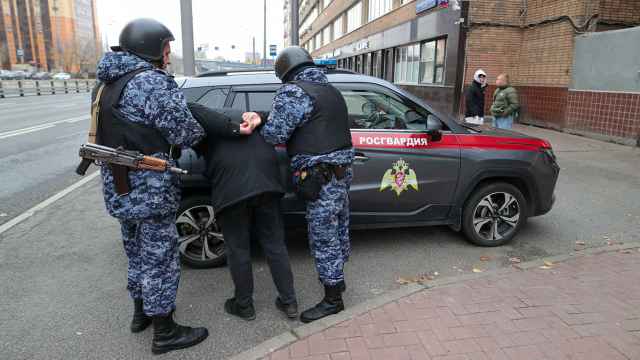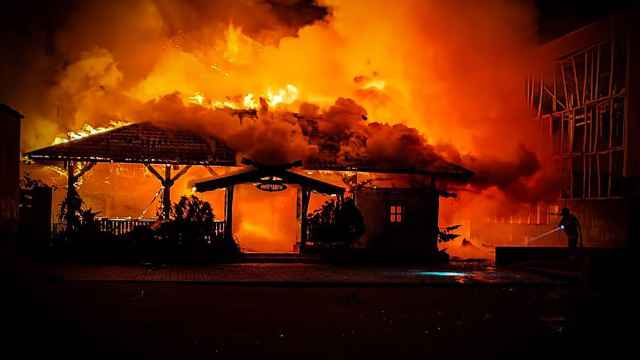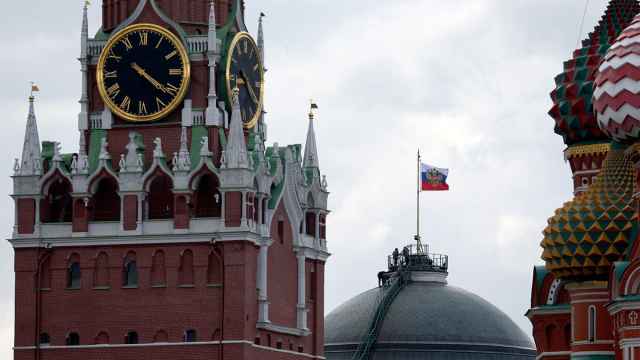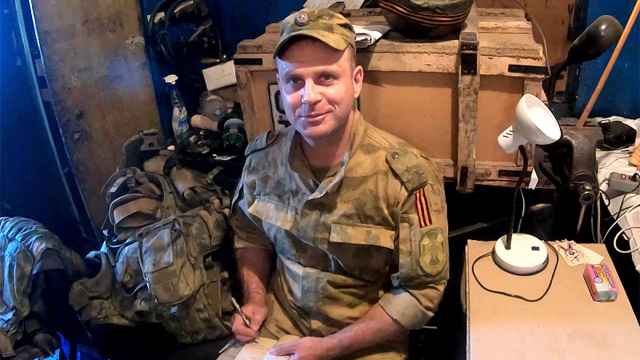Russia’s National Guard (Rosgvardia) has reintroduced tank units as part of a wider expansion of its heavy weaponry, the force’s chief Viktor Zolotov said Thursday.
According to Zolotov, the agency has “significantly” increased its firepower over the past two years.
“For the first time, tanks and anti-tank guns, self-propelled artillery and multiple-launch rocket systems have been brought into service,” the state-run TASS news agency quoted Zolotov as saying.
The reforms began after the June 2023 Wagner mercenary mutiny.
Wagner fighters in tanks reached as far as the outskirts of Moscow during the failed uprising, which was launched against Russia's military leadership over disagreements about the invasion of Ukraine.
By January 2024, Rosgvardia counted some 370,000 personnel, with Zolotov promising further increases to maintain control in Russia as well as in the occupied territories of Ukraine.
Rosgvardiya was created in 2016 as an internal security force reporting directly to Putin following protests demanding his resignation.
Zolotov, a former bodyguard to both Putin and Boris Yeltsin, has said he drew lessons from the failed 1991 coup attempt, arguing it could have been crushed within 20 minutes had the Kremlin acted decisively.
Rosgvardia played little visible role during Wagner’s mutiny, which started in the southern city of Rostov-on-Don, a key command center for the invasion of Ukraine.
Zolotov later defended the force, saying its units had been concentrated on Moscow’s approaches to prevent the capital from being taken.
He has described Wagner’s rebellion as “inspired by the West,” saying Prigozhin had either acted with the involvement of Western intelligence service or been driven by his own ambition to rise higher.
A Message from The Moscow Times:
Dear readers,
We are facing unprecedented challenges. Russia's Prosecutor General's Office has designated The Moscow Times as an "undesirable" organization, criminalizing our work and putting our staff at risk of prosecution. This follows our earlier unjust labeling as a "foreign agent."
These actions are direct attempts to silence independent journalism in Russia. The authorities claim our work "discredits the decisions of the Russian leadership." We see things differently: we strive to provide accurate, unbiased reporting on Russia.
We, the journalists of The Moscow Times, refuse to be silenced. But to continue our work, we need your help.
Your support, no matter how small, makes a world of difference. If you can, please support us monthly starting from just $2. It's quick to set up, and every contribution makes a significant impact.
By supporting The Moscow Times, you're defending open, independent journalism in the face of repression. Thank you for standing with us.
Remind me later.






